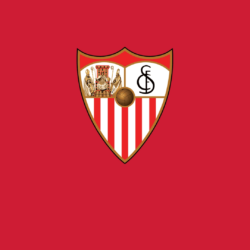Real Betis FC, affectionately known as Los Verdiblancos (The Green and Whites), is a professional football club based in Seville, Spain. Founded in 1907, the team has a rich history steeped in passionate rivalries, dramatic victories, and close ties with its local community. Real Betis FC continues to be an integral part of both the sporting landscape and the cultural fabric of Andalusia ok3651 org.
With a robust fan base that lights up the Estadio Benito Villamarín during every match, Real Betis FC represents not only a footballing institution but also a symbol of local pride and identity. The club’s ethos encapsulates the spirit of determination, resilience, and a deep-rooted connection to its supporters, making it more than just a team; it’s a way of life for many.
History and Origins of Real Betis FC
To understand Real Betis FC, one must delve into its origins, marked by ambition and tenacity.
The Early Years: Foundation and Growth
Real Betis FC was established in 1907 as Betis Football Club, initially formed by a group of students in Seville. The name “Betis” is derived from the ancient Roman name for the Guadalquivir River, which flows through the city, emphasizing the club’s connection to its roots.
During the early years, the club participated in regional competitions, where they gradually made a name for themselves. Small victories laid the foundation for growth. In 1914, Betis joined the newly formed Primera Federación, marking the beginning of their journey in top-tier Spanish football. By 1935, the club had won its first La Liga title, cementing its place in Spanish football history.
The early years were characterized by a strong sense of community and belonging among its players and fans alike. This connection would only deepen over the years, transforming the club into a significant part of the local culture.
The Evolution of the Club
As the decades passed, Real Betis FC experienced various highs and lows, from periods of glory to times of struggle. During the late 20th century, the club faced financial challenges, often battling relegation from La Liga. However, the unwavering support of their fans remained steadfast, showcasing the club’s resilience.
In the late 90s and early 2000s, Real Betis began to reclaim its stature, finishing high in La Liga and competing in European tournaments. The pinnacle came in 2005 when they secured the Copa del Rey title, a victory celebrated fervently by fans. Such achievements reflected the club’s potential to rise despite adversity, demonstrating the undying passion and loyalty of its supporters.
The Cultural Impact of Real Betis FC
Beyond the game itself, Real Betis FC has played a significant role in shaping the culture of Seville. The club fosters community spirit and promotes values such as sportsmanship, teamwork, and perseverance. It’s a platform for social interaction, engaging people of all ages and backgrounds.
The intense rivalry with Sevilla FC, known as the Seville derby, exemplifies the vibrant football culture in the region. It brings together families, friends, and even strangers, igniting fierce emotions and camaraderie. This rivalry is more than just a game; it embodies the very essence of Seville itself, highlighting the pride and passion that surrounds football in Spain.





